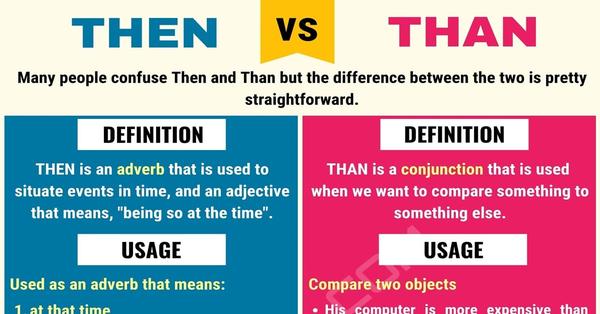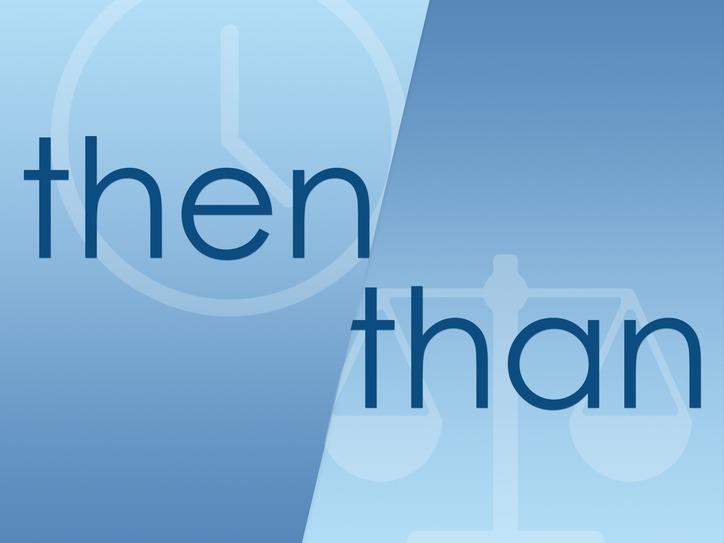TheconceptofDECThasahistoryofmorethantenyearssinceitwasputforwardtoitspopularization.Before1996,duetoinsufficienttechnicalspecificationsandhighequipmentcosts,DECTwasestablishedglobally.Thedevelopmentisnotsatisfactory.Butin1997,withtheresolutionofvariousproblemsandtheimprovementoftechnicalspecifications,DECTgraduallybecameapopularproduct.
Proposalstage
TheDECTspecificationwaspublishedbytheEuropeanTelecommunicationsStandardsInstitutein1992.ItwasoriginallynamedCT3,butitwaschangedtothisnamebecauseCT3hasbeenregistered.DECTgreatlyimprovestheshortcomingsofCT2,adoptstime-sharingmultipleaccess(TDMA)technology,usesasmall-scale,ultra-highfrequency,andlow-powermodetoprovideaservicethatcanconduct12simultaneouscallsinahigh-densityuserarea.
Starttoapply
In1997,withtheresolutionofvariousproblemsandtheimprovementoftechnicalspecifications,DECTachievedgreatsuccessinthedigitalcordlesstelephonebusiness.ThefirstDECTwirelesslocalareanetworkproducttoenterthemarketwasOlivetti'sNet3.GermancompaniesDosch&AmandandHoeft&WesselestablishedaDECTdatatransmissionsystemcooperationbusiness.However,theperiodwhenDECTwasdevelopedwasinthemid-1990s,whentherewerestilltoofewindustrialapplicationsofwirelessdatathatwerewidelyused.
Graduallypromoted
InEurope,afterDECTwasproposed,the900MHzCT1(first-generationwirelessphone)andCT2(second-generationwirelessphone),whichwerewidelyusedintheearlystages,havebeenItreplacesit.AccordingtostatisticsfromtheDECTForum,asaWLLprogram,31%oftheworld'snewlybuiltWLLfacilitiesin1997usedDECTtechnology,andin1998thisproportionwas32%.IntheAsianmarket,HongKongwasthefirsttointroduceDECT.HongKonghasbecomethemostdevelopedareaforDECTcordlessphonesinAsia.TheDECTwirelessPBXnetworkisusedinthenewHongKongairport.
Popularity
Today,asthemostsuccessfulhomedigitalcordlesstelephonesystemintheworldatthattime,thereare20millionfamiliesusingDECT-relatedcommunicationproducts.Ina1999reportbyStrategyGroup,itwaspredictedthatduetothepromotionofDECT,theentirecordlessphonemarketinWesternEuropeisexpectedtogrowfrom18millionin1998to26millionin2003.DECThasreached53%oftheEuropeancordlessphonemarket,becomingthemostimportantcordlessphonetechnology.Withtheincreaseinapplications,fromtheperspectiveofequipmentsales,amongthe13.5millionunitsofDECTequipmentsoldin1998,12.4millionwereresidentialterminals,633,000WLLlines,and510,000commercialWPABXterminals.
Applicationfields
TraditionalDECTtechnologyismainlyusedinresidentialResidential,commercialSOHO/SMEandwirelessfixedaccessWLL,etc.,whileIMT2000internationalmobilecommunicationdividesglobalcommunicationapplicationsintoThefourareasofpico,micro,macroandglobeareseamlesslycoveredbylandmobilecommunicationsystemsandsatellitemobilecommunicationsystems,respectively.TheapplicationofDECTispositionedinthepicopicocellandmicromicrocell,providinguserswithvoiceandmultimediaaccessservices.DECT'sseamlesshandovertechnologyandcross-arearoamingfunctionprovidestrongsupportforSOHO/SMEapplications.InWLLapplications,DECTemphasizesline-of-sightpropagationLOS,andtheaccessdistanceisgenerallybetween5and15km.Thefuturecommunicationnetworkisabigconvergednetwork.Theconvergenceofvoiceanddataservices,theconvergenceofswitchingandtransmissioncorenetworks,theconvergenceofwirelessaccessandwiredaccess,theconvergenceofmobilecommunicationsandfixedcommunications,theexplosivedevelopmentoftheInternetandtheascendantmobilecommunicationstechnologywilleventuallymovetowardsconvergence.Theintroductionofthe3Gstandardfullyreflectsthebandwidthandmobilityrequirementsofnext-generationnetworks.BecausetheDECTstandardfullytakesintoaccountforwardcompatibility,itcanquicklyexpandbandwidthandadapttotheneedsofmultimediaservices.ThespecificDECTapplicationsareasfollows:
(1)Homecordlessphones
AtypicalhomeDECTsystemincludesacordlessbasestationdeviceandseveralcordlesshandsets.DuetotheseriesofadvantagesofDECTcordlessphonescomparedwithanalogcordlessphones,themarketforhomeDECTcordlessphoneequipmenthasgrownrapidly.
(2)Commercialcordlesscommunicationsystem(cordlessPBX)
CommercialDECTcordlesscommunicationsystemmeetstheneedsofcordlessextensionsincommercialPBXsystems.OfficestaffcanuseaportablephonetoobtainthesamefunctionsasawiredextensionofanofficePBX.Thewirelessnetworkconsistsofmanywirelessbasestations,whichareallconnectedtothesamePBX.Itissimilartoacellularmobilephonesystem.Userscanroaminthecommunicationareaandsendandreceivephonecallswithinthecoveragearea.However,thecellradiusofDECTismuchsmallerthanthatofacellularmobilephonesystem,whichcansupportagreaterdensityofusers.Atthesametime,inthecordlessPBXsystem,thesamenetworkstructurecanbeusedtosupportbothvoicecommunicationanddatacommunication.Becauseofthesecharacteristics,DECThasbeenwidelyusedinEuropeasthemainstreamtechnologytorealizethe"cordlessoffice".
(3)WirelessLocalLoop(WLL)basedonDECT
Insuchasystemstructure,eachaccessuserisequippedwithafixedDECTaccessdeviceFAU(FixedAccessUnit)standardterminal,itcanbeinsertedintothissystem.Othertypesoffixedterminals,suchasClassIIIfaxmachinesanddataMODEMcanalsobeconnectedtoit.DECTcannotonlyprovidemultipleservicesforfixedterminals,butalsoprovidelocalroamingforwirelessmobilephoneusers.ThiskindofroamingiscalledCordlessTerminalMobility(CTM).DECTprovidesavarietyofwirelessaccessmethods.MobilephonesusingtheDECTgeneralaccessspecificationGAP(GeneralAccessProfile)andlaptopswithadaptercardscanroambetweendifferentpublicandprivatenetworks.TheabovethreeaspectsarethethreemostcommonlyusedareasofDECTandthethreeapplicationareaswhereDECTcommercializationhasbeenverysuccessful.IntheDECTtechnicalstandardsubmittedbyETSItoITU,theapplicationofDECThasbeenfurtherexpandedonthebasisoftheabove.Thenewapplicationareasincludethefollowingaspects.
(4)GSM/DECTintegratedsystem
ThestandardofDECTistoprovidecommunicationsolutionsforenvironmentswithhighuserdensityandhighcommunicationtraffic,suchasoffices,exhibitioncenters,andcommercialcenters.Theuser'smovingspeedisgenerallythesameasthewalkingspeed,andthemovingrangeisalsolimitedtoapredeterminedsmallerrange.Onthecontrary,theGSMsystemprovidesacontinuouswirelesscommunicationsolutionforuserswhomoveathighspeedsandinawiderange(includingusersonvehiclessuchascarsortrains).Therangeofusers’mobilityisquitelarge,evenfromadistance.Countryroamstoanothercountry.ThesecharacteristicsdeterminethattheGSMsystemisnotsuitableforthecommunicationneedsofanenvironmentwithhigh-densityusersandlargecommunicationtrafficsuchasofficesandcommercialcenters.IftheGSMsystemandtheDECTsystemcanbecombined,itwillbeabletoprovideuserswithanidealwirelesscommunicationscheme.Thatis,DECTcordlesscommunication+GSMdigitalcellularcommunication=aseamlessmobilecommunicationsystemindoorsandoutdoors.TheGSMinterfaceprotocolGIP(GSMInterworkingProfile)intheDECTstandardprovidesthepossibilityforthiscombination.ThiscombinationcanmakeDECTsuitableforindoorhighcommunicationtraffic,high-densityusersandthelargeoutdoorcommunicationcoverageofGSM.Combinethecharacteristics.ThisisveryattractiveforGSMnetworkoperators,becauseonlyneedtoaddDECTequipmentinahigh-densityuserenvironment,andthenconnectedtotheGSMsystem,youcangreatlyenhancetheGSMsystemforofficesorbusinesscenters.Thebusinessprocessingcapabilitiesofsuchanenvironment.Adual-modemobilephonecansimultaneouslyembedDECTandGSMaccessmethods.ItisnotonlyastandardGSMterminal,butalsoastandardDECTterminal,whichiscalledaDECT/GSMdual-modemobilephone.ThiskindofmobilephonesearchesforDECTaccessbeforeeachuse.IftheuserisinthecoverageofDECTservice,itwillcommunicateinDECTmode,otherwiseitwillautomaticallyswitchtoGSMcommunicationmode.
(5)DataserviceandmultimediaserviceofDECT
InordertomeettherequirementsofIMT2000,inthetechnicalreportsubmittedbyETSItoITU,DECTdatacommunicationandmultimediacommunicationTheabilityhasbeengreatlyimproved.UsingD8PSKmodulationandtimeslotcombiningtechnology,thedatarateofDECTcanreach2Mbps.DatacommunicationapplicationsincludecordlesslocalareanetworksCLAN(CordlessLocalAreaNetworks)andtheuseofcordlessaccesstoX.25packetdatanetworks,theInternet,andISDN.MultimediacommunicationisanimportantserviceintheIMT2000system.DECThasformulatedaseriesofrelatedstandardsformultimediacommunication.ThelatestDECTsystemcansupportvariouscommunicationservicesincludingvoice,video,high-speeddata,ande-commerce.

Networkadvantages
TheDECTstandardsupportsvoice,high-speeddataandvideo,makingitoneofthemostpowerfulandimportantcommunicationstandards.TheapplicationofDECTisalmostunlimited,includingsuchaswirelessprivatebranchexchange(PBX),ISDN,telecommunicationpoint(telepoint)andwirelesslocalloop.DECTisalsothepreferredaccesstechnologyforcordlessterminalmobile(CTM)services.ADECTaccessnetworkincludesacommoncontrolfixedpart(CCFP)thatcontrolsseveralbasestations,calledtheradiofixedpart(RFP).Themobilephoneormobilepart(PP)mayalsobeaPCplug-incard.TheDECTaccessnetworkcaneasilygetthesupportofstandardcorenetworks(suchasPSTNorISDN),becauseitprovidesstandardizedwirelessinterface(interworking)toolstodifferentnetworks,includingvoicenetworksanddatanetworks.BecauseDECThasanadvancedradioprotocol,itcanintegratemultiplebearersinasingledatastream,therebyprovidingextremelyvariablebandwidth.DECTusesaDECTradiobasestationtosupportanetdatathroughputrateofn×24kbit/s,upto552kbit/s.TheabilitytotransmitpacketdataonDECT'spublicairinterfacegreatlyimprovesitsefficiency,makingDECTdifferentfrommostradioaccesstechnologies.DECTissuitableformobilecommunicationsinindoorenvironmentsandoutdoorapplicationswithlimiteddistances.DECTadoptsadynamicradiochannelselectionscheme,whichsupportsupto10,000Erlang/km2intermsofacellwitharadiusofabout10meters.

DECTitselfhasproductinteroperabilityfunctions,especiallyDPRS(DECTPacketRadioServices),whichbringstogetherseveralinteroperableDECTsaswirelessLANandwirelessnetworkaccessservices.Withagoodrange(upto200metersindoorsand6kilometersdirectionalantennasoutdoors),dedicatedspectrum,highanti-interference,openinteroperability,anddatatransmissionspeedsofabout500kbit/s,comparedtoWi-FiDECTisabetterchoice.
Applicationstandards
ExcellentdataserviceisthekeytoDECT'ssuccess.Asadigitalcordlesstelephonesystem,DECThaswonthemarketwithitssuperiordatatransmissioncapabilities.Similartoanotherdigitalcordlesstelephonetechnology,PHS,ETSI'sDECTstandardprovidesacompletesetofprotocolstoadapttovariousdataserviceapplications.Inordertoadapttothedevelopmentofdataservicesandmultimediaservices,DECT'sdatastandardshavebeenchanged.TheoriginalA/B.1,A/b.2andC.2havebeenmergedintoastandardcalledDECTPacketRadioService(DPRS).Thisstandarddefinessixbasicservices,whicharerepresentedbyClassA,B,andCservicesandmobilitylevels1and2.
Business
TypeAbusinessismainlysuitableforlow-powerandsimplebusiness,andTypeBbusinessissuitableforhigh-speedandhigh-throughputbusiness.ClassAandClassBservicesarecompletelyinteroperable,withonlysomedifferencesinperformance.TheA/BprotocolsupportstheintercommunicationbetweenframerelayandEthernetandTokenRingLAN,aswellastheintercommunicationwiththeInternetprotocol.ClassAandClassBservicesprovideuniversalFrameRelay(FREL)U-Plane(U-Plane)servicesthroughLU2.ClassCbusinessisanupgradeofbusinesstypesAandB.Thefulllinkaccessprotocol(LAP-U)functionisaddedtothebasicbusinesstypes.ClassCservicesprovidedatalinkcontrolU-layerservicesbyaddingLU3(LAPU)totheFRELservicesofClassAandBservices.LAPUprovidesflowcontrol,addedARQandin-bandusersignaling.ThetransmissionofsynchronousdataservicesisdefinedbytheDprotocolunderpreparation,themessageservices(suchascharacterpaging)aredefinedbytheEprotocol,andthefax,E-mail,WWWaccessandSMSaredescribedbytheFprotocol.
Level2service
MobilityLevel1providesapplicationsforclosedusergroups.Itdoesnotincludethecallsetupprocess,sothevirtualcircuitisimplicitinthiscaseandispermanentlypresented(present).Theseapplicationsaremainlysuitableforclosedimplicitgroup(CUG).Indicatesthatthemobilephone(PP)hasbeenregisteredinthebasestation(FP).Thiskindofserviceprovidessimulatedpermanentvirtualcircuit(PVC).DECTneedstoprovideasuitablebearerbetweentheterminaladaptationfunction(TAF)ofthePTandtheFTinterworkingunit(IWU).Mobilitylevel2canbeusedforprivatenetworkandpublicroamingapplications.ItprovidesfullDECTC-plane,includingcallestablishmentprocess,mobilitymanagementandbusinessnegotiation(negotiation).Inthiscase,thevirtualcircuitisonlyreflectedinthecall.Thisapplicationismainlyusedforprivatenetworksandpublicroaming.Theserviceparametersareinvolvedinthecallestablishmentprocessandmaybemodifiedduringthesubmissionprocess.Forallsynthesisprotocols,adedicatedintercommunicationagreementdeterminesthattheinteractionbetweenDECTC-planeandU-planeisononeside,andtheexternalnetworkprotocolisontheotherside.
Inaddition,DECT'smultimediaprotocolstandardwasoriginallymainlypreparedforthesmallofficeandhomeusermarket.ItcombinestheselectionofDECTdataserviceswiththeoptionalservicessupportedbyGAP,allowingtheterminaltoprovidetrueintegratedmultimediaservicesincludingvoiceanddata.Theagreementonmultimediaservicesisforbetterinteroperability.Multimediaapplicationsneedtoadjustdata,andDECTmustfacethistrend.ThenewadjusteddataprotocolwasaddedtotheDECTstandard,allowingthedataratetobetransmittedupto2Mbit/s.
DECTtechnicalfeatures
1.Providehigh-quality,low-latencyvoiceservices
2.Supportdatacommunicationservices
3.Supportsautomaticlosslesshandover,includingcarrier/slothandovercausedbythedeteriorationofchannelcharacteristicsinthecell,andhandovercausedbyusermovement.Planning
5.Itisalow-powersystem
6.Itisasmallcellsystemthatcanprovidehightrafficdensity
7.UsematuretechnologytoreduceEquipmentandcostofuse
8.Datacanbeencryptedwithgoodconfidentiality
9.Thereisacompleteauthenticationandauthenticationmechanism,andthesecurityisgood
10.Therearestricttechnicalspecificationsfortheairinterfacetoensurethatmobilephonesproducedbyanymanufacturercanbeconnectedtobasestationsproducedbyothermanufacturers.
11.Itisjustanaccesstechnologyanddoesnotinvolvethephysicalstructureofthesystem.Manufacturersprovidedesignflexibilityandopportunitiesforcreation
ThegoalofDECTistoprovideuserswithvoiceanddataservicesatalowprice.TheDECTsystemcanbeasmallhomesystem,adedicatedcommercialcordlesstelephonesystem,orapublictelephonesystem.
WorkingGroup
DECTcanbecomearelativelysuccessfuldigitalcordlesstelephonesystem,thankstotheperfectstandardwork.TheEPDECTworkinggroupunderETSIismainlyresponsibleforformulatingDECTstandardsanddraftingreports,andthesub-workinggroupisresponsibleforformulatingmoredetailedtechnicalspecifications.Thesub-workinggroupsmainlyinclude:
DECT/CI
ThisworkinggroupismainlyresponsibleforDECTCommonInterface(CI),CommonAccessProtocol(GAP),WirelessTerminalMobility(CTM)),DECT/ISDN,DECT/GSMandfixedwirelessaccessstandards.
DECT/Data
Thissub-workinggroupisresponsibleforallDECTdataprotocols,suchasDECTInternetAccessProtocol,MultimediaAccessProtocol(MMAP)andDECTPacketDataProtocol(DPRS).
DECT/Test
Thissub-workinggroupisresponsiblefortestingallcommonDECTstandards.
Data
ThepurposeoftheEXODUSprojectistoresolvethetransitiontotheUniversalMobileTelecommunicationsSystem(UMTS)inordertoverifyasmoothtransitionpath.Todothissuccessfullymeansusingpartoftheexistingsystemasmuchaspossible.Therefore,thestartingpointchoseaplatformbasedonthesecond-generationmobilesystem,whichisusedtoaccessthecorenetwork(DECT)usingintelligentnetwork(IN)andN-ISDN.TheselectedstructurecomplieswiththerecommendationsofEuropeanstandards[2].InordertohaveamorecompatiblewaytoprovidemobilityasanINservice(andtoeffectivelymanagemobility-relatedprocedures),theservicecontrolfunction(SCF)andtheservicedatafunction(SDF)aredividedintotwoparts,onepartDealwithbusinesslogic,andtheotherpartdealswithmobilemanagement.ThesignalingstructureisbasedontheINApplicationPart(INAP),supportingpersonalmobileperformanceandsupplementaryservices.Inaddition,itismatchedwiththeMobileApplicationPart(MAP)tosupportthemobileperformanceoftheterminal.Inthisway,themobilityofbothindividualsandterminalscanbesupportedasINservices.
Gettheprovisionofdataserviceswithoutaffectingtheradiointerface.Dataistransmittedonthesamevoicechannel,butitneedstobeimprovedontheterminalandnetworkside.Strictlyspeaking,theenhancementhasthenecessaryfunctionsaddedintheformofanewdedicatedresource(dataresourcefunction—DRF).Sinceitisimplementedasaserver,itdoesnotaffecttheswitch.EachswitchinthenetworkcanbeaccessedwithstandardISDNuserpart(ISUP)performance.Thisenhancedfunctioncanbeeconomicallyaddedtotheexistingnetworkbecausetheimprovementisconcentratedonthesharedequipment.Thisapproachisinlinewiththeemergingclient/serverapproach.Italsodoesnothavetoreplacealargenumberofexpensiveaccessbasestationsthathavealreadybeendeployed.
OnlyonemodificationmustbemadetotheDECTprotocol:atoolforidentifyingdatacallsisincluded.Inordertodealwithdataandvoicecallsdifferently.
Experiment
AuserexperimentwasconductedinMay1997.Thegoalistoenable"real?UserstouseEXODUSapplicationsandservicesintheirdailyworkThesiteusesEXODUSapplicationsandservices.Thiskindoftestisverydifferentfromthesystemdemonstrationtousers,becausethetestneedstobeclosetothemarketentrystage(accordingtotheprovisionofservicesandQoS)products.ThetestusedtwoexchangecentersinItaly(inToulon)TheCSELTstationandtheItaltelstationinMilan)areconnectedtoeachotherbyPSTN.Asingleserver(calledthehomedatabase-servicecontrolpointHDB-SCP)completesmobilitymanagement.TheconnectionbetweentheToulonswitchandtheHDB-SCPiscarriedbyadedicateddigitallinkLoad.Adataserver(applicationserverandapplicationgateway)isusedtomanagealldatacallsandalsoprovideaccesstotheInternet.
Astheexperimentprogresses,thefocusoftheprojectshiftstothenecessaryenhancementsSupportthemobilityofindividualsandterminalsontheB-ISDNcorenetwork.Atthisstage,thewirelessaccessisstillDECT,butithasbeenenhancedtoprovideadvancedservicessimilartothefixednetwork(thereasonforthischoiceisthattheEXODUSprojectfocuseson(Enhancementofthecorenetwork).Theservicesusedfordemonstrationatthisstagecanbedividedintouserservicesandmobileservices.Userservicesincludetwotypes:retrievalanddialogue:
multimediainformationretrieval;Broadbandvideophone;narrowbandDECTvideophone;digitaltreasureguardian;babymonitor;databaseaccess;remotecontrol.
Theretrievalserviceprovidestoolstoretrievetheinformationstoredintheinformationcenterondemand.Thedialogueserviceprovidesreal-timeTwo-waycommunicationofpoint-to-pointinformationtransmission.Eachuserservicewillassessthemobilityoftheterminaland/oruserfordemonstration.Therefore,itisoftenassociatedwithoneormoreofthefollowingmobileservices:Inviewofthefactthatthisprojectbelievesthatthefuturenetworkwillhavebothwiredandwirelessaccesstechnologies,itprovidesanintegratedapproachtodealwithmobilityinthecorenetwork.Inaddition,supplementaryservicesfortheintelligentnetwork(suchasunconditionalorunconditionalCallforwardingwhenconnected,routingbytime,callscreening,etc.).
